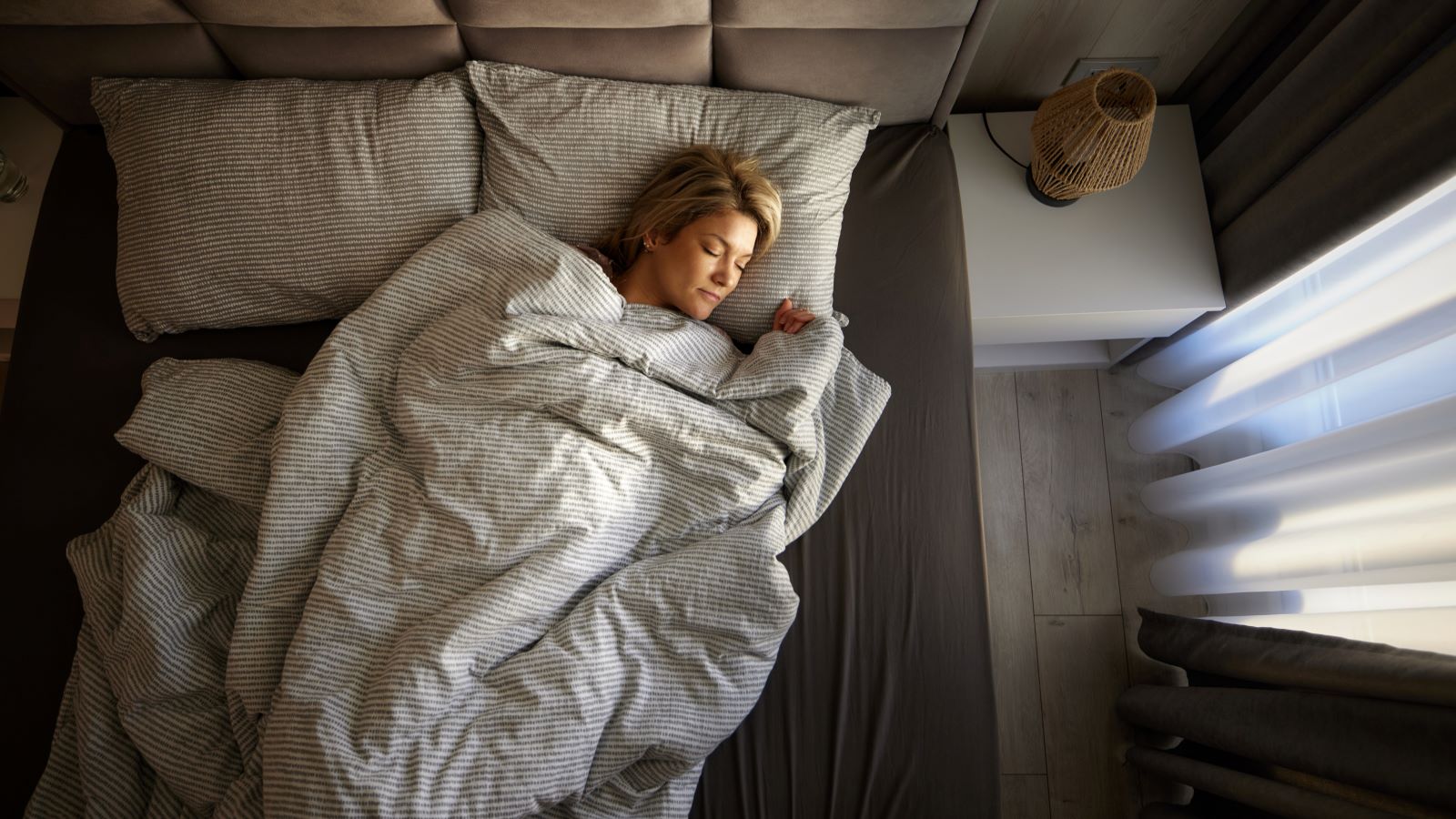<< Back
Can These 3 Supplements Really Improve Your Sleep?

September 21, 2025
It’s 2 a.m. and you’re still wide awake. You’ve tried counting sheep, flipping your pillow, maybe even scrolling your phone — but nothing works.
At that point, it’s easy to wonder if a sleep supplement could be the answer.
“They can help sometimes,” says Pantcho Maslinski, MD, a sleep specialist with Hartford HealthCare’s Ayer Neuroscience Institute Sleep Center at Windham Hospital. “But without good sleep hygiene, even the best supplement won’t do much.”
Here’s how to get the sleep you’re dreaming about.
Sleep supplements aren’t for everyone.
There’s no “best” or “safest” option out there to help you sleep.
“What works for one person might not work for another,” says Dr. Maslinski. “And there’s always the potential for side effects.”
Still curious, though? Here’s what to know about some popular sleep supplements.
> Related: Do I Need Less Sleep as I Get Older?
1. Melatonin.
Melatonin is a hormone your body makes at night to help regulate your sleep-wake cycle.
It can help realign your biological clock – especially if your sleep timing is off from travel, work or staying up too late.
“Melatonin is the hormone of dusk,” says Dr. Maslinski. “It works best if you take it a few hours before bed.”
How to take it: A low dose – around 1.5 to 3 milligrams – is usually enough to start.
2. Magnesium.
Magnesium plays a big role in helping muscles relax, and experts think it may also calm the brain by acting on GABA receptors — the same system that helps you naturally drift toward sleep.
“A typical dose is around 400 milligrams,” says Dr. Maslinski. “But that varies from person to person.”
How to take it: Don’t overdo it since too much magnesium can cause loose stools. And if you have kidney issues, check with your doctor before starting it.
3. Valerian root.
This herbal sleep option likely works by acting on GABA receptors in the brain, just like magnesium.
“But it’s not without side effects,” says Dr. Maslinski. “Some people feel sluggish the next morning or get headaches or dizziness.”
How to take it: Start low and stop if you notice problems.
> Related: What Is the Best Temperature to Sleep In?
Nothing beats good sleep habits.
Supplements can help, but they’re no substitute for good sleep hygiene.
“Sleep hygiene is what really makes the difference,” says Dr. Maslinski.
Here are his go-to tips for better rest:
- Stick to a sleep schedule – yes, even on weekends.
- Cut the caffeine after noon (even decaf can linger).
- Skip naps during the day.
- Keep screens out of the bedroom.
- Make your room cool, dark and quiet. You can also add in sleep sounds.
- Only use your bed for sleep – not scrolling or snacking.
- If you’re still awake after 20 minutes, get up and do something calming.
- Eat a balanced and nutritious diet.
> Related: Could White, Brown or Pink Noise Help Improve Your Sleep?
Still not sleeping?
Supplements can help here and there – but it’s not a long-term fix.
And since these aren’t FDA-regulated, supplements might not be as reliable as you think.
“If you’re having trouble sleeping more than once or twice a week – or it’s starting to mess with your focus, energy or mood – see a sleep specialist,” says Dr. Maslinski. “There’s almost always something we can do to help you out.”